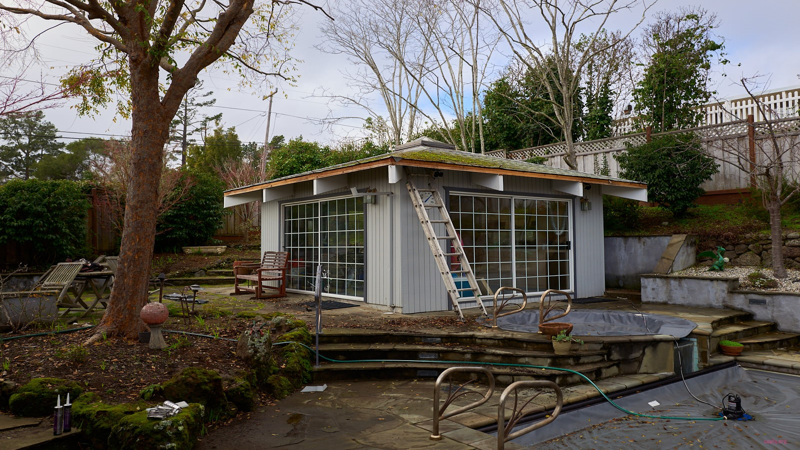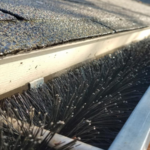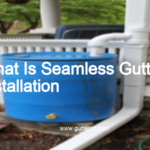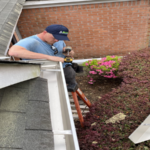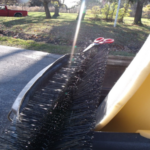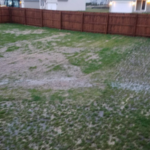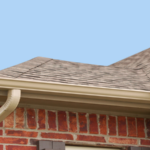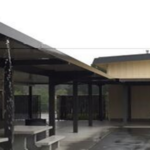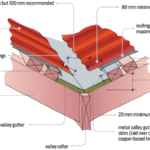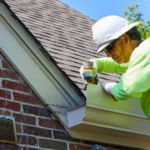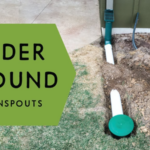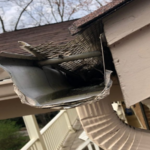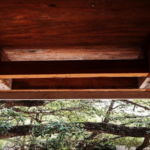If your roof is leaking, it’s likely due to a problem with your gutters. When gutters become clogged with leaves and debris, they can no longer funnel water away from your roof. This can cause water to back up under your shingles, leading to leaks. To prevent this problem, it’s important to keep your gutters clean and free of debris.
What happens if gutters are blocked?
If gutters are blocked, the water will not be able to drain properly and will instead pool around the base of the house. This can lead to water damage to the foundation and the landscaping. Additionally, it can create a favorable environment for mold and mildew to grow.
How do I know if my gutters are clogged?
If your gutters are clogged, you may notice that water is not draining properly from your roof. This can cause water to back up and overflow, potentially causing damage to your home. Clogged gutters can also lead to ice dams in the winter, which can cause even more damage.
If you suspect that your gutters are clogged, you should inspect them to be sure. You can do this by using a ladder to look inside the gutters. If you see any leaves, twigs, or other debris, then your gutters are most likely clogged.
If your gutters are clogged, you will need to clean them out as soon as possible. This can be done by using a hose to flush out the gutters, or by manually removing the debris. Whichever method you choose, be sure to do it carefully to avoid damaging your gutters.
Once you have cleaned out your gutters, be sure to inspect them regularly to prevent them from becoming clogged again.
How do I know if my gutter is leaking?
- Check for any visible signs of water damage on the outside of your home near the gutters. This could include things like water stains, peeling paint, or mold.
- Inspect your gutters to see if there are any cracks, gaps, or holes.
- Place a bucket underneath your gutters and pour a small amount of water into the gutters.
- If you see any water leaking from the gutters, then you know they are leaking and need to be repaired.
What is the most common cause of roof leaks?
The most common cause of roof leaks is improper installation or maintenance. Although leaks can also be caused by severe weather conditions, such as hurricanes or tornadoes, they are most often the result of human error. Improper installation can occur when the roof is not properly sealed or when flashing is not installed correctly. Maintenance issues, such as clogged gutters or missing shingles, can also lead to leaks.
Why is my roof suddenly leaking?
There are a few potential reasons for your roof to suddenly start leaking. One possibility is that there is a hole or crack in the roof that has gone unnoticed until now. Another possibility is that the flashings around the roof penetrations (vents, pipes, chimneys, etc.) have come loose or are leaking. Also, if your roof is getting old, the shingles or other roofing materials may be deteriorating and starting to leak. If you have had recent heavy rains or snowstorms, the water may have just saturated the roof and made its way through to the inside of your home.
If you have a leaking roof, it’s important to take care of it right away. If left unaddressed, a leaky roof can cause serious damage to your home, including to the structure, insulation, and electrical system. If you’re not sure what’s causing your roof to leak, it’s best to call a professional roofer to take a look. They will be able to pinpoint the source of the leak and make the necessary repairs.
Bottom Line
If your gutters are clogged, it’s possible for your roof to leak. Gutters play an important role in protecting your roof from water damage, so it’s important to keep them clean and clear. If you think your gutters may be clogged, it’s best to have them checked by a professional to avoid any potential damage to your roof.
